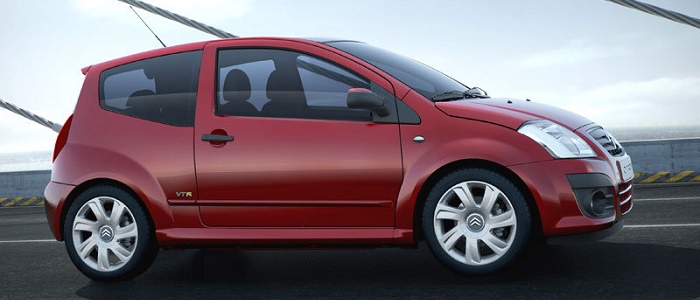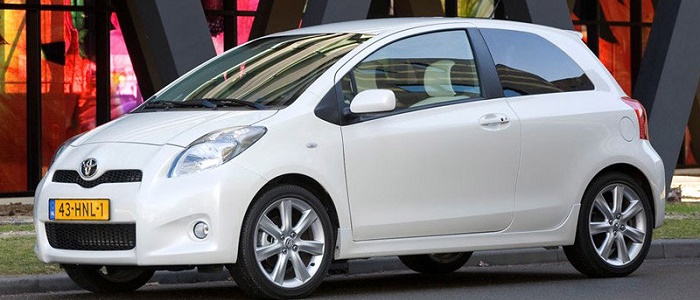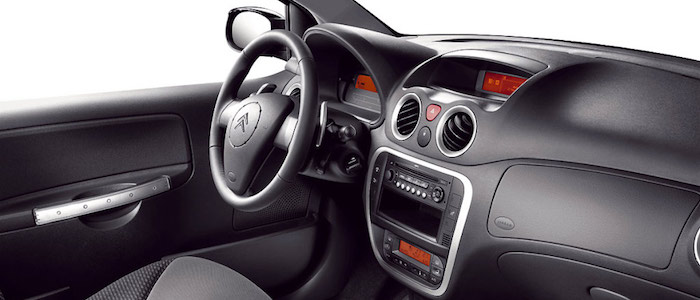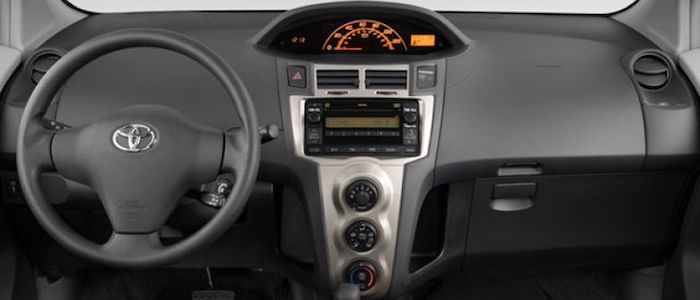Compare two cars
Compare any two cars and get our Virtual Adviser™ opinion
Marketing
Dimensons & Outlines
Engine
Performance (manual gearbox)
Performance (automatic gearbox)
Expenses
Virtual Adviser's™ opinion
Well, these are two pretty similar cars we have here! It's only details that could potentially make the difference. Considering they both belong to the city car segment and utilize the same 3-door hatchback body style and the front wheel drive system, it all comes up to the specific petrol engine choice they offer. The first one has a Peugeot-engineered powertrain under the hood, a 4-cylinder, 16-valves 90hp unit, while the other one gets its power and torque from a 4-cylinder, 16-valves 98hp engine designed by Toyota.
SafetyThe first thing to look into here would be the results from European New Car Assessment Programme (Euro NCAP) tests performed on the two cars. Good thing is that both vehicles got tested, with the Toyota being a slightly better choice apparently. Moving further on, let's take a closer look at some additional safety-related facts. Both vehicles belong to the city car segment, which is generally not a very good thing safety-wise, but that fact doesn't break the tie between the two cars. On the other hand, if we'd like to consider vehicle mass in this context too, which we definitely should, the Japanese car offers a marginal difference of 4% more metal.
ReliabilityI don't like generalizing things when it comes to reliability, although it does seem that Toyota does have a slight advantage, when all the models are taken into account. That's the official data, while our visitors describe reliability of Citroen with an average rating of 4.1, and models under the Toyota badge with 4.6 out of 5. Some independent research have also placed C2 as average reliability-wise, and Yaris is more or less at the same level.Above it all, drivers of cars with the same engine as the French car rank it on average as 4.0, while the one under the competitor's bonnet gets 4.6 out of 5.
Performance & Fuel economyToyota is undoubtly more agile, reaching 100km/h in 1.3 seconds less than its competitor. Still, it lacks the power to win the top speed competition, topping at 175 kilometers per hour, 6km/h less than the other car. When it comes to fuel economy things look pretty much the same for both cars, averaging around 5.4 liters of fuel per 100 kilometers (53 mpg), in combined cycle.
Verdict
Toyota appears just a bit more reliable, although the difference is truly marginal. The most important thing when deciding between any two vehicles should always be safety, both passive and active. In my opinion, everything taken into account, the Japanese car offers much better overall protection, which launches it ahead of the other contender. It all continues in the same direction, with Toyota being considerably quicker, thus putting more smile on driver's face. To make things even better, it consumps less fuel! All together, there's not much more to say, in this case I wouldn't even consider anything but Toyota. In any case that's my personal view, built upon all the data available to me. What should decide here though is the way you feel about the two vehicles, and I hope you'll find my guidelines useful in the process. In case you have two minutes to spare I invite you to define your needs, desires and budget and see which car would be chosen by the virtual adviser™, out of 12.000+ vehicles we currently have in our database.

































